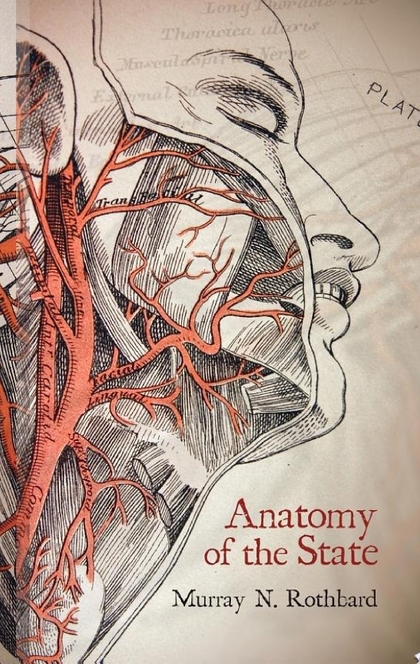
TOP 5 Books Recommended by Michael Saylor
0
likes
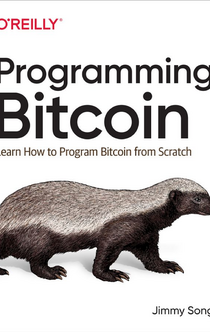
Programming Bitcoin
Dive into Bitcoin technology with this hands-on guide from one of the leading teachers on Bitcoin and Bitcoin programming. Author Jimmy Song shows Python programmers and developers how to program a Bitcoin library from scratch. You’ll learn how to work with the basics, including the math, blocks, network, and transactions behind this popular cryptocurrency and its blockchain payment system.By the end of the book, you'll understand how this cryptocurrency works under the hood by coding all the components necessary for a Bitcoin library. Learn how to create transactions, get the data you need from peers, and send transactions over the network. Whether you’re exploring Bitcoin applications for your company or considering a new career path, this practical book will get you started.Parse, validate, and create bitcoin transactionsLearn Script, the smart contract language behind BitcoinDo exercises in each chapter to build a Bitcoin library from scratchUnderstand how proof-of-work secures the blockchainProgram Bitcoin using Python 3Understand how simplified payment verification and light wallets workWork with public-key cryptography and cryptographic primitives
See all
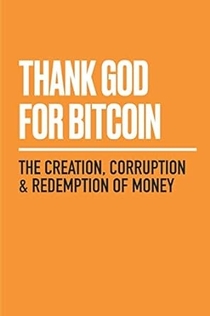
Thank God for Bitcoin
"There is an economic storm brewing that threatens the sandy foundations of our monetary system." - From the Foreword by Russell Okung, Super Bowl ChampionMoney is a fact of everyday life. We earn it, spend it and save it. We're tempted to worship it and to trust it to provide for our needs. While much has been written about the power, danger, and stewardship of money, little has been written about what money actually is and whether or not money itself is moral. That information gap has been exploited to enrich a privileged few, enslave millions, and reap confusion and division throughout the world. How did this happen and what can we do about it?Thank God for Bitcoin explores the ways in which the current monetary system is broken and what can be done to fix it. It explores the creation of money, its corruption and its potential redemption. It looks at how Bitcoin is redeeming the ills of our corrupt monetary system and how the ongoing transition to sound money is a source of hope for a broken world.
See all
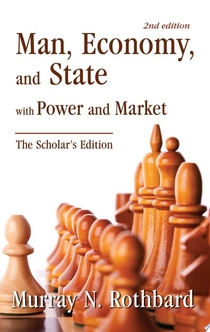
Man, Economy, and State, Scholar's Edition
Rothbards great treatise and its complementary text are now combined into a single 4.5"x7" pocket edition. The full 1,500 page treatise in an easy to read and super convenient package. It might not seem possible but it is done and it works. It makes a great companion volume to Misess Human Action in pocket size, as well as the Bastiat Collection in pocket size. Murray N. Rothbards great treatise provides a sweeping presentation of Austrian economic theory, a reconstruction of many aspects of that theory, a rigorous criticism of alternative schools, and an inspiring look at a science of liberty that concerns nearly everything and should concern everyone. This edition takes this book out of the category of underground classic and raises it up to its proper status as one of the great economic treatises of all time, a book that is essential for anyone seeking a robust economic education. The captivating new introduction by Professor Joseph Salerno that frames up the Rothbardian contribution in a completely new way, and reassesses the place of this book in the history of economic thought. In Salernos view, Rothbard was not attempting to write a distinctively "Austrian" book but rather a comprehensive treatise on economics that eschewed the Keynesian and positivist corruptions. This is what accounts for its extraordinarily logical structure and depth. That it would later be called Austrian is only due to the long-lasting nature of the corruptions of economics that Rothbard tried to correct. Students have used this book for decades as the intellectual foil for what they have been required to learning from conventional economics classes. In many ways, it has built the Austrian school in the generation that followed Mises. It was Rothbard who polished the Austrian contribution to theory and wove it together with a full-scale philosophy of political ethics that inspired the generation of the Austrian revival, and continues to fuel its growth and development today. From Rothbard, we learn that economics is the science that deals with the rise and fall of civilization, the advancement and retrenchment of human development, the feeding and healing of the multitudes, and the question of whether human affairs are dominated by cooperation or violence. Economics in Rothbards wonderful book emerges as the beautiful logic of that underlies human action in a world of scarcity, the lens on how exchange makes it possible for people to cooperate toward their mutual betterment. We see how money facilitates this, and allows for calculation over time that permits capital to expand and investment to take place. We see how entrepreneurship, based on real judgments and risk taking, is the driving force of the market. Whats striking is how this remarkable book has lived in the shadows for so long. It began as a guide to Human Action, and it swelled into a treatise in its own right. Rothbard worked many years on the book, even as he was completing his PhD at Columbia University. He realized better than anyone else that Misess economic theories were so important that they needed restatement and interpretation. But he also knew that Misesian theory needed elaboration, expansion, and application in a variety of areas. The result was much more: a rigorous but accessible defense of the whole theory of the market economy, from its very foundations. But the publisher decided to cut the last part of the book, a part that appeared years later as Power and Market. This is the section that applies the theory presented in the first 1,000 pages to matters of government intervention. Issue by issue, the book refutes the case for taxation, the welfare state, regulation, economic planning, and all forms of socialism, large and small. It remains an incredibly fruitful assembly of vigorous argumentation and evidence. A major advantage of Man, Economy, and State, in addition to its systematic presentation, is that it is written in the clearest English you will find anywhere in the economics literature. The jargon is kept to a minimum. The prose is crystalline and vigorous. The examples are compelling. No one has explained the formation of prices, the damage of inflation, the process of production, the workings of interest rates, and a hundred of topics, with such energy and clarity. Over years, students have told us that this book is what made it possible for them to get through graduate school. Why? Because Rothbard takes on the mainstream in its own terms and provides a radical, logical, comprehensive answer. If you have read the book, you know the feeling that comes with reaching the last page: one walks away with the sense that one now fully understands economic theory and all its ramifications. It is a shame that the authentic edition of the classic that Rothbard wrote fully 40 years ago is only now coming into print. And yet the good news is that, at last, this remarkable work in the history of ideas, the book that makes such a technically competent, systematic, and sweeping case for the economics of liberty, is at last available. REVIEWS As the result of many years of sagacious and discerning meditation, [Rothbard] joins the ranks of the eminent economists by publishing a voluminous work, a systematic treatise on economics.... An epochal contribution to the general science of human action, praxeology, and its practically most important and up-to-now best elaborated part, economics. Henceforth all essential studies in in these branches of knowledge will have to take full account of the theories and criticisms expounded by Dr. Rothbard. Ludwig von Mises It is in fact the most important general treatise on economic principles since Ludwig von Misess Human Action in 1949. Henry Hazlitt Man, Economy, and State is Murray Rothbards main work in economic theory. It appeared in 1962, when Murray was only 36 years old. In it Murray develops the entire body of economic theory, in a step by step fashion, beginning with incontestable axioms and proceeding to the most intricate problems of business cycle theory and fundamental breakthroughs in monopoly theory. And along the way he presents a blistering refutation of all variants of mathematical economics. The book has in the meantime become a modern classic and ranks with Misess Human Action as one of the two towering achievements of the Austrian School of economics. In Power and Market, Murray analyzed the economic consequences of any conceivable form of government interference in markets. The Scholars Edition brings both books together to form a magnificent whole. Hans-Hermann Hoppe In 1972, this book was selling in hardback for $150 in current dollars. So the pocket edition, which includes Power and Market, a great index, plus improved layout, is about a fraction of the cost of the original, for a far better product.
See all
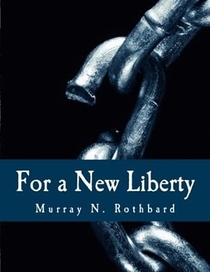
For a New Liberty
A classic that for over two decades has been hailed as the best general work on libertarianism available. Rothbard begins with a quick overview of its historical roots, and then goes on to define libertarianism as resting "upon one single axiom: that no man or group of men shall aggress upon the person or property of anyone else." He writes a withering critique of the chief violator of liberty: the State. Rothbard then provides penetrating libertarian solutions for many of today's most pressing problems, including poverty, war, threats to civil liberties, the education crisis, and more.
See all

The Anatomy of the State
Murray Rothbard was known as the state's greatest living enemy, and this is his most succinct and powerful statement on the topic, an exhibit A in how he came to wear that designation proudly. He shows how the state wrecks freedom, destroys civilization, and threatens all lives and property and social well being.This gives a succinct account of Rothbard’s view of the state. Following Franz Oppenheimer and Albert Jay Nock, Rothbard regards the state as a predatory entity. It does not produce anything but rather steals resources from those engaged in production. In applying this view to American history, Rothbard makes use of the work of John C. CalhounHow can an organization of this type sustain itself? It must engage in propaganda to induce popular support for its policies. Court intellectuals play a key role here, and Rothbard cites as an example of ideological mystification the work of the influential legal theorist Charles Black, Jr., on the way the Supreme Court has become a revered institution.
See all






